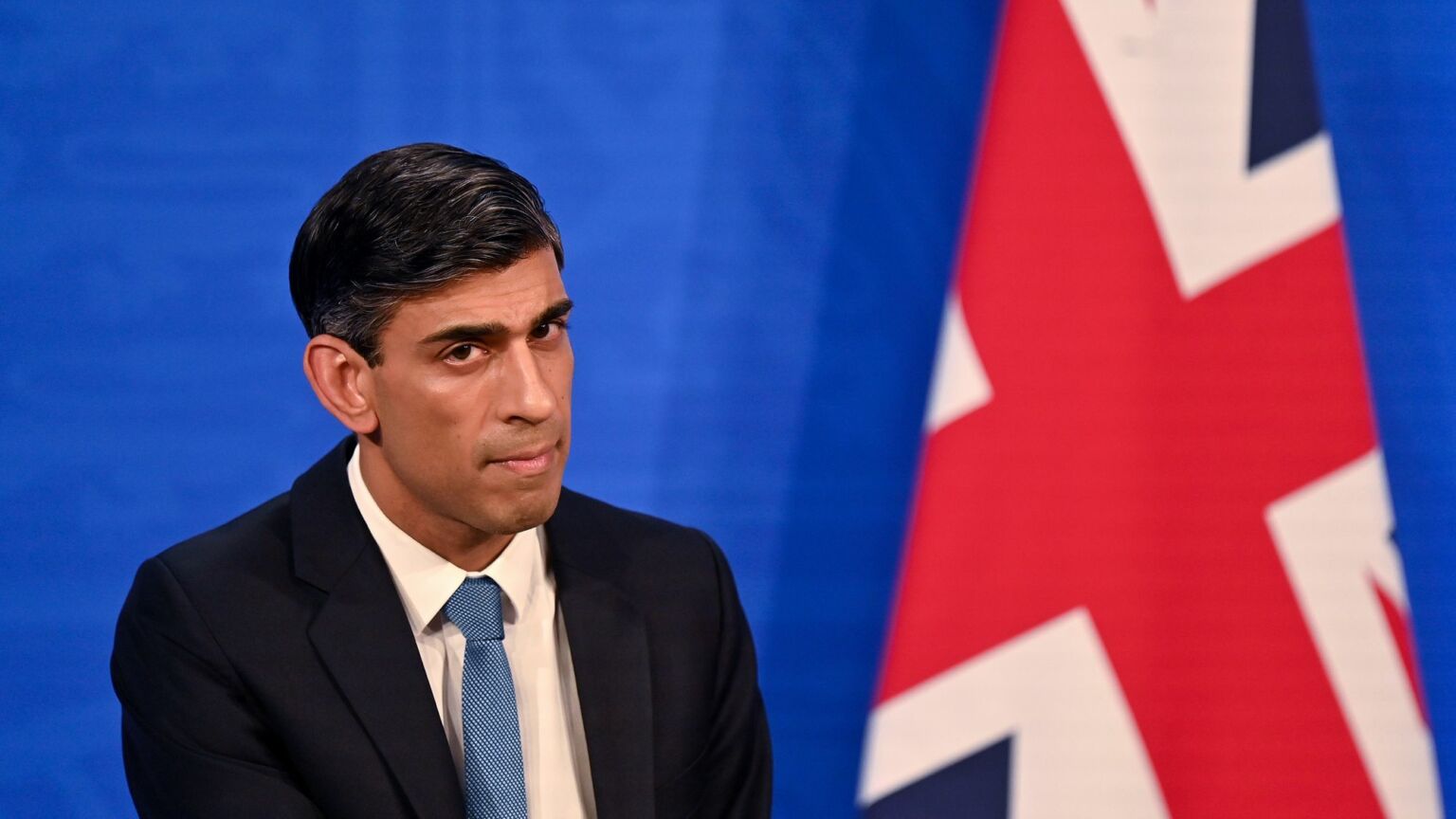A new age of prohibition
Rishi Sunak’s tobacco ban is a sign of things to come.

Post-Covid Britain could have gone one of two ways. After roughly 18 months of the most intrusive hyper-regulation of personal behaviour in modern history, the public could have demanded an era of untrammelled freedom to make up for lost time. Or the government could have decided that it rather liked the ‘health at all costs’ approach and doubled down on the public-health authoritarianism. As we reach the end of 2023, it is obvious that there will be no ‘Roaring Twenties’ in the UK. Authoritarian public health has won. The government has stopped even pretending to care about personal freedom.
It is difficult to tell whether the nation’s rapid descent into neurotic puritanism is being driven by the unhinged political class or by the hateful, purse-lipped, lemon-sucking actions of the public. Evidence for the latter came when a survey by More in Common revealed that one in five Britons wants to close the pubs and bring back the ‘rule of six’. Just under 30 per cent want to close nightclubs and 45 per cent want face masks to be mandatory on public transport. This survey was not carried out in December 2020, at the height of the pandemic, or even in December 2021. It was carried out this month. We must come to terms with the fact that a sizeable minority of our fellow citizens – people who walk past us in the street without giving any indication of the madness bubbling within – have decided that if they don’t personally do or like something, it should be banned.
And why wouldn’t they? Banning things they don’t like has been the displacement activity of successive governments for the past 20 years. Giving smokers another kicking is a perk of the job. Prime minister Rishi Sunak piled in this year with the ludicrous policy of very slowly prohibiting the sale of every tobacco product he can think of, plus cigarette papers. Britons who turn 14 this year, and anyone younger, will be prevented from ever legally buying cigarettes, rolling tobacco, cigars and much else besides. If it is possible to cross the Rubicon by jumping the shark, this was the moment it happened. It was symbolic that the announcement was made at the Conservative Party conference, which is traditionally where the leader gives a speech pretending to believe in personal liberty and free markets.
The prohibition of tobacco is one thing the charlatans of the anti-smoking lobby promised they would never endorse. It would never happen, they said. Talk of banning cigarettes was just slippery-slope scaremongering from libertarians, they said. But as soon as Sunak announced it, they were right behind him, as were nearly 70 per cent of the public, according to another depressing survey by YouGov in November. The stout, freedom-loving Brits can all too often be joyless hypochondriacs standing shoulder to shoulder with actual prohibitionists. After the policy was announced, the radio phone-ins were ablaze with callers demanding to know why the government wasn’t banning smoking outright. And disposable vapes. And gambling advertisements. And why were those bloody night clubs still open? Come on Rishi, let’s ban our way to happiness.
Tolerance is fading out of the world – and with it, the truth. It is possible to make an honest case for neo-puritanism, but it would not carry much support even in Counter-Enlightenment Britain. And so it must be peppered with dozens of lies. Above all, it must persuade the public that other people’s behaviour is their business when it isn’t. To that end, The Times recently claimed that obesity ‘is costing the state almost £100 billion a year’. In February, pressure group Action on Smoking and Health (ASH) claimed that smoking – which is at an all-time low – costs the ‘wider economy’ £173 billion a year. Both figures are preposterous, but no one seemed to notice. Nor did anyone raise an eyebrow when The Times made the ludicrous claim that hospital admissions for obesity have doubled in the space of just six years (they have hardly risen at all).
No one tested the limits of the media’s credulity in 2023 more than the campaigners against ‘ultra-processed food’ (UPFs). This upper-middle-class fad is led by doctor and broadcaster Chris van Tulleken, who claims that miners burn the same number of calories at work as office workers and that, ‘the idea that you can burn off calories with exercise comes almost entirely from research funded by the soft-drink industry’. The second of these falsehoods earned him a community note on Twitter / X, but his 2023 book, Ultra-Processed People, inspired a thousand think-pieces from dim journalists, secured numerous debates in the House of Lords and was awarded Science Book of the Year by The Sunday Times.
We are drowning in a sea of deceit and will continue to drown so long as journalists regard fact-checking as an optional extra to be outsourced to a trainee, rather than a core part of the job. We will continue to be told lies such as that ‘vaping is much worse than smoking’, that one in four children are obese and that 409 suicides a year are caused by problem gambling. The incompetent and corrupt World Health Organisation will continue to tell us that e-cigarettes ‘lead to learning disorders’ and that ‘no amount of alcohol is safe to drink’.
Anyone who speaks out against the tidal wave of pathological paternalism is accused of not caring about the health of the nation – or, worse still, seeking to undermine ‘our precious NHS’. But none of this is about health. It’s about control. As this foul year draws to an end, I leave you with the words of HL Mencken, who wrote in 1918, as the US lurched towards its own prohibition, that ‘the whole aim of practical politics is to keep the populace alarmed (and hence clamorous to be led to safety) by an endless series of hobgoblins, most of them imaginary’. ‘Public health’ summed up.
Christopher Snowdon is director of lifestyle economics at the Institute of Economic Affairs. He is also the co-host of Last Orders, spiked’s nanny-state podcast.
Picture by: Getty.
To enquire about republishing spiked’s content, a right to reply or to request a correction, please contact the managing editor, Viv Regan.








Comments
Want to join the conversation?
Only spiked supporters and patrons, who donate regularly to us, can comment on our articles.